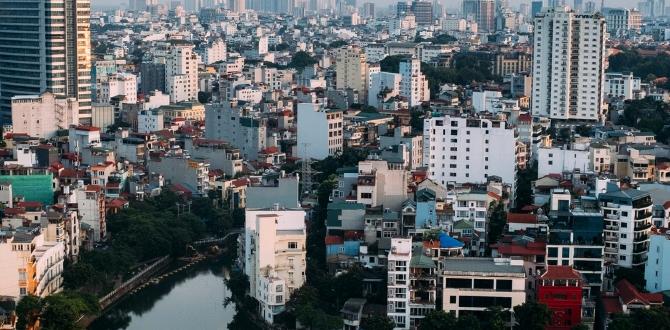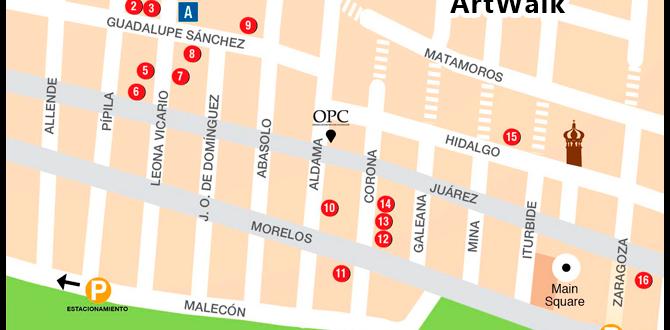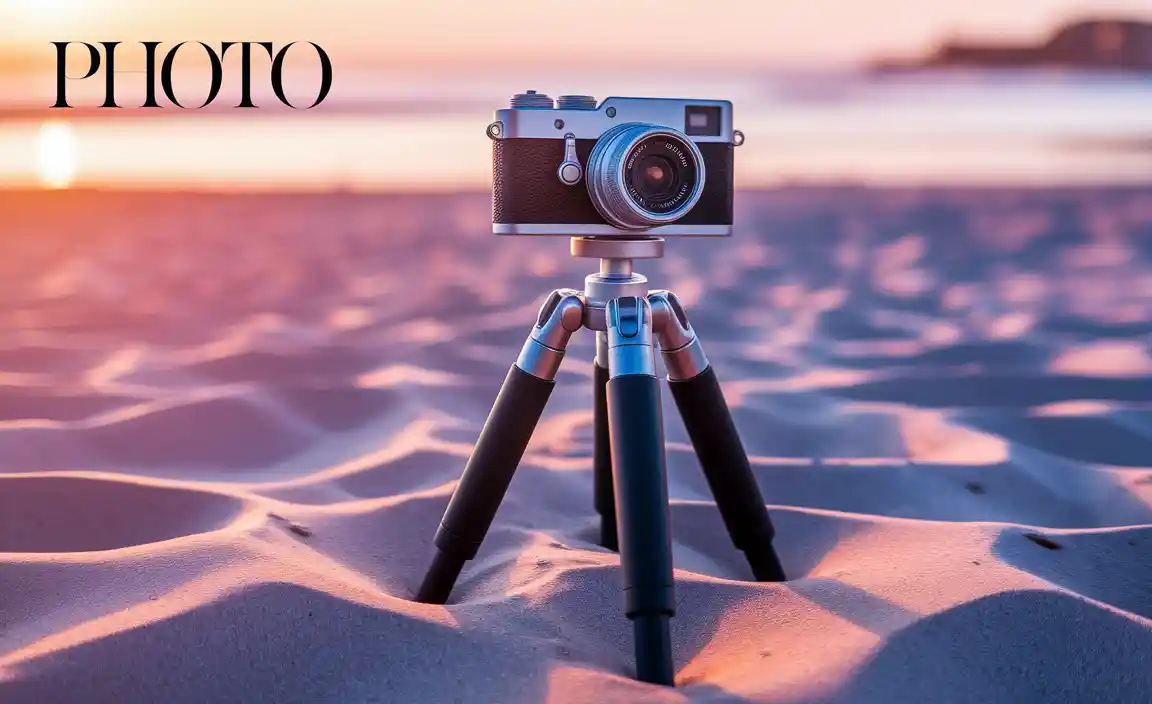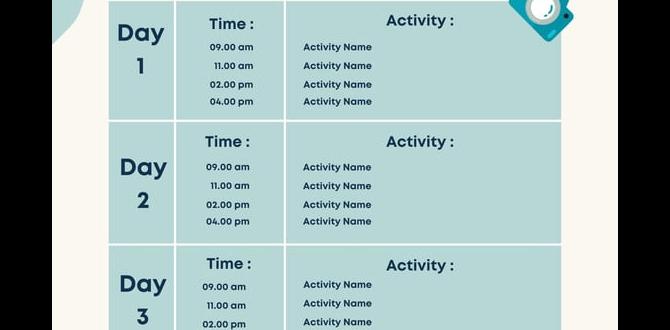Algeria accessible travel guide: Essential tips for a smooth journey include planning ahead, understanding local infrastructure, seeking accessible accommodations, utilizing accessible transportation options, and communicating your needs clearly to local contacts and service providers. Prepare for a rich cultural experience by researching specific accessibility features for your planned activities and destinations.
Planning a trip to Algeria can be an incredibly rewarding experience. This North African gem boasts ancient Roman ruins, stunning desert landscapes, vibrant cities, and a rich cultural tapestry. However, like many destinations, navigating Algeria with accessibility needs requires a bit of preparation.
Many travelers wonder how to ensure their journey is both comfortable and enjoyable, especially when dealing with different infrastructure and customs. This guide is here to demystify accessible travel in Algeria, offering practical, actionable tips that will help you create unforgettable memories. We’ll cover everything from booking your stay to getting around, so you can feel confident and prepared for your Algerian adventure.
Unlocking Algeria: Your Accessible Travel Checklist
Embarking on a journey to a new country, especially one with diverse landscapes and infrastructure as Algeria, naturally brings questions about accessibility. For travelers with specific needs, thorough preparation is key. This guide is designed to provide you with essential tips to make your Algerian experience as smooth and enjoyable as possible. We’ll break down important considerations, from pre-trip planning to on-the-ground strategies.
Understanding Accessibility in Algeria: The Lay of the Land
Algeria is a country steeped in history and natural beauty, offering a wide range of attractions. While accessibility is a growing concern globally, it’s important to have realistic expectations for infrastructure. Many older sites, particularly in historic medinas or remote natural areas, may present challenges. However, newer hotels, major tourist attractions, and government buildings are often designed with greater consideration for accessibility.
The key is to do your research and communicate your needs effectively. Understanding the general accessibility landscape will allow you to plan your itinerary and choose accommodations that best suit your requirements. For instance, while a bustling ancient market might be visually stunning, navigating its narrow, uneven streets with a wheelchair could be difficult. Conversely, many modern hotels in cities like Algiers or Oran will have accessible rooms and facilities.
Pre-Trip Planning for Accessible Travel
Thorough planning is your most valuable tool when traveling to Algeria with accessibility needs. This involves researching your destinations, accommodations, and transportation options well in advance.
1. Destination Research:
- Identify Accessible Cities and Sites: Focus on major cities like Algiers, Oran, and Constantine, which tend to have more developed infrastructure. Research specific attractions you wish to visit. Websites of national parks or historical sites might sometimes offer accessibility information.
- Check Government Resources: The Algerian Ministry of Tourism often has information related to tourist infrastructure, which might indirectly touch upon accessibility. While not always directly detailed, it can give you an idea of newer developments.
- Consult Travel Forums and Blogs: Look for blogs and forums where other travelers with disabilities have shared their experiences. These firsthand accounts can offer invaluable practical advice.
2. Accommodation:
- Book Accessible Hotels in Advance: Contact hotels directly to confirm the availability and specifics of accessible rooms (e.g., roll-in showers, grab bars, door widths). Don’t rely solely on booking website filters, as they may not be entirely accurate.
- Consider Location: Choose accommodations that are centrally located or close to attractions and amenities you plan to use. This minimizes travel time and reliance on transportation.
3. Transportation:
- Flights: Inform your airline in advance about any special assistance you require, including wheelchair services at the airport.
- Ground Transportation: Research accessible taxi services or private transport companies that can accommodate your needs. This often requires pre-booking.
4. Documentation and Support:
- Medical Information: Carry a summary of your medical conditions, medications, and emergency contacts.
- Travel Insurance: Ensure your travel insurance covers any specific needs or potential medical emergencies.
Navigating Airports and Flights
Airports are often the first point of contact with a new country’s travel infrastructure. Major international airports, including Algiers’ Houari Boumediene Airport (ALG), generally have established procedures for assisting passengers with disabilities.
- Pre-booking Assistance: When booking your flight, notify the airline of your specific needs. This allows them to arrange for wheelchair assistance through the airport, from check-in to boarding and arrival.
- Airport Staff: Airport staff are usually trained to assist passengers requiring special accommodations. Don’t hesitate to ask for help at any point.
- Navigating Terminals: Most modern airport terminals are designed with ramps and elevators. However, consider the distances within large airports and factor in extra time for transit.
- Carry-on Essentials: If you use medical supplies, such as adult or child diapers, ensure you pack enough in your carry-on luggage for the flight duration, plus a little extra. This is crucial in case of delays or lost checked baggage. Familiarize yourself with airline policies on carrying medical equipment.
Choosing the Right Accommodations
Your accommodation is your home base, and finding the right one in Algeria can significantly impact your trip’s comfort and ease.
Accessible Hotel Features to Look For:
- Roll-in Showers: Essential for wheelchair users.
- Grab Bars: Strategically placed in bathrooms and near toilets.
- Accessible Room Size: Enough space to maneuver wheelchairs or mobility aids.
- Lowered Countertops/Beds: For easier access.
- Accessible Common Areas: Lobbies, restaurants, and lounges should be reachable.
- Elevators: Crucial for accessing upper floors.
When booking, it’s highly recommended to call the hotel directly to confirm these details. Websites can sometimes provide outdated or inaccurate information. Asking specific questions about the dimensions of the bathroom, the presence of a raised toilet seat, or the type of shower setup will ensure your needs are met. For example, you might ask, “Does the accessible room have a roll-in shower with a detachable showerhead, and are there any steps to access the room from the elevator?”
Accessible Transportation Options within Algeria
Getting around Algeria requires careful consideration of the available transport. While public transport may not always be fully accessible, there are options.
1. Taxis:
Standard taxis are common, but most are not equipped for wheelchair users. However, in larger cities, you may find some private companies that offer accessible van services. These must be booked in advance. Research companies that specifically cater to tourist needs or medical transport.
2. Private Car Hire:
Hiring a car with a driver can be a good option. You can often negotiate for a vehicle that can accommodate your needs, though a dedicated accessible vehicle might still be a challenge to find without specialized services. Communicate your requirements clearly when booking.
3. Buses and Trains:
Inter-city buses and trains are a common way to travel within Algeria. While newer train models might offer better accessibility, older infrastructure and high steps can make boarding difficult. Research specific routes and train types if considering this option. For buses, accessibility is generally limited.
4. Navigating Cities:
In cities, walking can be challenging due to uneven sidewalks, steps, and traffic. Look for newer, more modern districts where pedestrian infrastructure might be better. Older medinas will likely present the most significant navigational hurdles.
To find potentially accessible services, consider checking resources like Accessible Travel, which aggregates information on accessible tourism worldwide. While it might not have specific Algeria listings for all needs, it’s a good starting point for understanding how to research such services for any destination.
Communicating Your Needs Effectively
Clear communication is vital for a smooth accessible travel experience in Algeria.
- Learn Basic Arabic Phrases: Knowing a few basic Arabic phrases can go a long way. Phrases like “I need help” (أحتاج للمساعدة – Ahtaju lil-musa’ada) or “accessible bathroom” (حمام ميسور – Hammam maysoor) can be useful.
- Written Notes: Have key phrases or requests written down, perhaps in Arabic and French (widely understood in Algeria), to show people. This is especially helpful for specific needs like “I use a wheelchair” (أنا أستخدم كرسياً متحركاً – Ana astakhdim kursiyan mutaharrikan) or requiring specific dietary accommodations.
- Work with Local Guides/Translators: Hiring a local guide who understands your needs can be invaluable. They can act as an intermediary, arrange transport, and help navigate cultural nuances. Ensure they are briefed thoroughly before the trip.
- Be Direct and Polite: When asking for assistance, be direct about what you need and always do so politely. Most people will be eager to help if they understand.
Essential Items for Comfort and Convenience
Beyond travel documents and clothing, consider packing items that enhance comfort and manage specific needs during your trip.
For Mobility Assistance:
- Portable Ramps: Small, sturdy portable ramps can help navigate short steps or curbs.
- Comfortable Footwear: Even if you primarily use a mobility aid, comfortable shoes are important for any transfers or short walks.
- Repair Kit: For wheelchairs or mobility scooters (e.g., tire repair kit, basic tools).
For Personal Care Needs:
For travelers who require adult diapers or child diapers, planning is essential. Algeria has pharmacies, but specific brands or types might be harder to find. It’s best to pack an ample supply from home.
- Sufficient Supply: Pack more than you think you’ll need to account for unexpected delays or longer excursions.
- Discreet Bags: Bring sealable bags for discreet disposal.
- Comfort and Fit: Ensure you are using products that are comfortable and reliable for long journeys and varied activities. Brands like [Reputable Diaper Brand Example] (e.g., Depend for adults, Pampers for children) offer various options for different absorbency needs, suitable for extended travel.
- Ease of Change: Consider products designed for easy changes if you’ll be traveling frequently during the day.
Other Useful Items:
- Medication: Ensure you have all prescription medications in their original packaging with a copy of the prescription.
- First-Aid Kit: A basic kit with essentials.
- Portable Charger/Power Bank: For electronic devices.
Navigating Tourist Attractions
Algeria offers a wealth of historical and natural wonders. Here’s how to approach them with accessibility in mind:
Historical Sites and Ruins:
- Roman Ruins (e.g., Timgad, Djemila): These UNESCO World Heritage sites are often expansive with uneven terrain. While some paths might be paved or stabilized, expect a lot of walking over gravel or uneven stones. Contacting the site administration in advance might yield specific information about accessible routes, though these are often limited due to the nature of ancient ruins.
- Kasbahs (e.g., Algiers): The ancient walled cities, or Kasbahs, are typically characterized by narrow, winding, and often steep alleyways. Access can be very challenging for those with mobility issues. Focus on key viewpoints or accessible sections if manageable.
Museums and Modern Attractions:
Museums in major cities are generally more accessible than ancient sites. They often have elevators and accessible restrooms. For example, the National Museum of Antiquities and Islamic Art in Algiers, while historic, is more likely to have some accessibility features than an open-air ruin.
Natural Landscapes (e.g., Sahara Desert):
Desert excursions require significant planning. While the vastness is appealing, navigating dunes or accessing remote camps can be difficult. Consider guided tours that specialize in accessible desert experiences, if available, or focus on less challenging desert access points. Some organized tours may offer accessible vehicles for desert travel, but this is a niche service that needs to be arranged far in advance.
Safety and Emergency Preparedness
Safety is paramount for any traveler, and having a plan for emergencies is crucial when traveling with specific needs.
- Emergency Numbers: Familiarize yourself with Algeria’s emergency numbers. For general emergencies, dial 112. For police, it’s 17, and for the fire department, it’s 14.
- Medical Facilities: Research hospitals and clinics in the cities you plan to visit. Knowing their locations and capabilities can be reassuring. Consider carrying contact information for your country’s embassy or consulate.
- Local Support Networks: If possible, connect with local disability organizations or tourism bodies that might offer support or advice.
- Contingency Plans: Have backup plans for transportation, accommodation, or activities in case your primary arrangements fall through or prove inaccessible.
Cultural Considerations and Etiquette
Respecting local customs and traditions is part of a fulfilling travel experience.
- Dress Modestly: Algeria is a predominantly Muslim country, and modest dress is appreciated, especially outside major tourist hubs. This applies to both men and women.
- Patience and Hospitality: Algerians are known for their hospitality. Be prepared for friendly interactions and offers of tea or assistance. Patience is key, as service and transport might not always adhere to Western timelines.
- Photography: Always ask permission before taking photos of people, especially women and children.
Table: Sample Accessible Travel Itinerary (Algiers)
This sample itinerary focuses on the capital, Algiers, which generally offers more accessibility.
| Day | Morning Activity | Afternoon Activity | Evening Activity |
|---|---|---|---|
| Day 1 | Arrival at Houari Boumediene Airport (ALG), accessible transfer to hotel. | Check-in to accessible accommodation. Rest. | Accessible welcome dinner at a city center restaurant. |
| Day 2 | Visit the Notre Dame d’Afrique Basilica. (Likely accessible via ramps/elevator to main levels). | Explore the accessible sections of the Museum of Modern Art (MAMA) or National Museum of Fine Arts. | Stroll along the accessible Corniche (waterfront promenade) if feasible, enjoying the sea views. |
| Day 3 | Guided accessible tour of the accessible areas of the Casbah (focus on ground level access points and main squares). | Visit the Library of the Emir Abdelkader or a modern shopping center for a more controlled environment. | Attend a pre-booked cultural performance if an accessible venue is confirmed. |
| Day 4 | Day trip to Tipasa archaeological site (check accessibility specifics for Roman ruins). | Relax or revisit a favorite accessible spot. | Farewell dinner. |
Tips for Traveling with Children Requiring Diapers
Traveling with young children always adds a layer of complexity, and managing diaper needs requires forethought.
- Diaper Bag Essentials: Pack more diapers, wipes, and changing pads than you anticipate needing. Diaper changing facilities may be scarce, so a portable changing mat is invaluable.
- Snacks and Drinks: Always have plenty of easy-to-eat snacks and beverages to keep children comfortable and occupied during travel.
- Familiar Comforts: Bring a favorite toy or blanket to help your child feel secure in new environments.
- Diaper Disposal: Carry small plastic bags for soiled diapers, as public bins might not always be readily available or suitable.
For parents needing adult diapers for themselves or a companion, the considerations are similar. Prioritize packing enough for the entire trip, including travel days. Look for discreet packaging and easy-to-carry options. Brands available through retailers like Target or specialized medical supply stores often offer various absorbencies and designs suitable for extended use, providing peace of mind.
Frequently Asked Questions
Q1: Is Algeria generally accessible for wheelchair users?
Generally, Algeria’s accessibility for wheelchair users can be challenging, especially in historical areas or natural landscapes. Newer hotels, major tourist attractions, and modern buildings are more likely to have accessible features. Planning and pre-booking are crucial.
Q2: What are the best cities in Algeria for accessible travel?
Cities like Algiers, Oran, and Constantine tend to be more accessible due to better modern infrastructure. They have a higher concentration of accessible hotels and some accessible attractions compared to smaller towns or rural areas.
Q3: How can I find accessible accommodation in Algeria?
The best method is to research hotels in your target cities and then contact them directly. Ask specific questions about roll-in showers, grab bars, and elevator access. Booking websites’ accessibility filters may not always be accurate.
Q4: Are taxis in Algeria accessible for people with disabilities?
Most standard taxis are not accessible. However, in larger cities, you may find private companies that offer accessible vehicles, but these typically require advance booking. It’s advisable to research and arrange this well before your trip.






